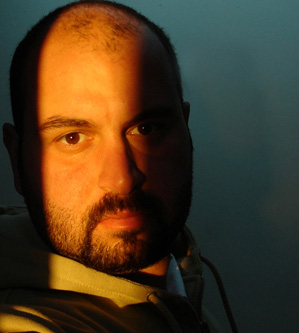www.phillipknightley.com
Books: The First Casualty
- Team Journalism
Phillip was part of the Inside team at the Sunday Times.
Is team journalism safer?
Would less journos be killed if they worked in a team?
- What are the factors that make war reporting impossible?
- The conflict between the military and journalists. One wants to win a war and the other wants to tell what has happened, the last thing war generals want the public to know.
- From the early days of war reporting the tension between what was happening and what was allowed to be published existed.
- On wars of “national survival” it has been much easier to control the British media and force a government line.
- Journalism used to boost public morale. WW2, number of planes downed would be inflated and a jovial tone might be put into official releases.
- On wars fought elsewhere, eg Africa. War was seen as an adventure story. Lots of colour and drama with journos putting themselves as a central character in their reporting. Very bloodthirsty accounts were published, journos going into the action. All this worked as long as the ones who fought were not English.
VIETNAM
- Changed the way wars were reported
- US thought of this in the beginning as a “public relations” war. Not enough was being done to stop Communism abroad so a very visible war was fought. Knightley says that even the choice of the country was because communication lines there were much better than elsewhere.
- Press played along at the beginning but the longer it went the more things went wrong and the press started reporting back ugly face of war.
- This was the start of the distrust between Military and Press. An American military committee (???) came back with a report suggesting that war was not winnable with cameras on the field. Vietnam was lost on the press front first
- committee put together “ How to manage the media in war time” guide handbook/manual. Has been used ever since.
Fighting dirty
Phillip Knightley changed our view of war and the media with his book The First Casualty. To mark its updating, he argues that the war correspondent has an easy choice: either become part of the military's propaganda machine - or quit. [The Guardian, Thursday March 30, 2000]
- What made the difference during the most recent US wars was the arrival of different TV stations bringing a new dimension to war reporting.
- “while the US wanted to show us shock and awe, al-jazeera showed us the shocked and the awed”.
- War reporting by non local journalists always gives new insights. There is no need for patriotic considerations. Brings in insight and perspective.
BUT
- neutrality is impossible. Journalists are humans, they bring with them their cultural baggage and their nationalities. All you can hope is that a journalist shows some sort of fairness.
Journalistic concepts to consider:
- Peace Journalism (vs. war reporting).
Reporting on the cause of conflict vs reporting only after conflict takes place.
reportingtheworld.com
- Journalist Engage. A journalism of engagement.
NOTES TO SELF:
*Check: "How to manage the media in war time"
according to Knightley this is a manual issued by the US military on media operations after the Vietnam war and has been updated and used for all conflicts consequently.

1 comment:
hey salam!
hope you're doing reasonably well, and yes, i'm glad to read some bits of you again. ;)
Post a Comment